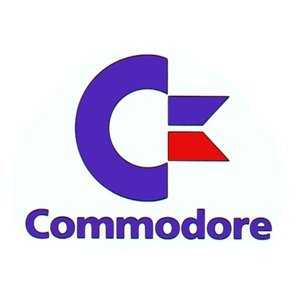Leaderboard
Popular Content
Showing content with the highest reputation on 05/18/2016 in all areas
-
HyCam2 (HyperCam v2) allows you to video record any or all of your screen to an AVI file. This UDF allows you automate HyperCam through it's Automation Server interface. There are still more features to be added, but the main ones are there. Download it here. Thanks to seangriffin for the introduction to the HyperCam utility.2 points
-
I love chiptune music, but BASS only support XM, IT, S3M, MOD, MTM, UMX and MO3 file format for MOD music. 1 | Nintendo NES and SNES Sound File Players May be you already have some files with extension nsf, nsfe, spc or rsn (unzip rsn files for get spc collection files inside) but you can't play them in a AutoIt script ? So I searched around a bit, and found 2 DLL ( nsf_player.dll and spc_player.dll ) for play Nintendo NES and SNES Sound Files. Interest of those DLL is that they can play from file path or binary data, avoiding temp files. Dll and audio files are embedded in scripts for permit you to test them right away. Some info/download links are in front of each script. 2 | ModPlug Player Another dll found : npmod32.dll who support mod, s3m, xm, med, it, s3z, mdz, itz, xmz and wav files. Interest : it can play some rares chiptune formats, you can also pause, set volume and set position. Inconvenient : do not load from binary datas. Dll and audio files are embedded in script and i have added a gui for permit you to try right away ! Warning : Do not work on Win8. 3 | ZXTune Player 2 (basszxtune.dll v2.4.5) UPDATE of 23 DEC 2016 Using BASSZXTUNE chiptune support for BASS ( Support as0, asc, ay, ftc, gtr, psc, psg, psm, pt1, pt2, pt3, sqt, st1, s, st3, stc, stp, ts, txt, vtx, ym, chi, dmm, dst, m, sqd, str, sid, cop, tf0, tfc, tfd, tfe, $b, $m, ahx, ayc, bin, cc3, d, dsq, esv, fdi, gam, gamplus, gbs, gym, hes, hrm, hrp, lzs, msp, mtc, nsf, nsfe, p, pcd, sap, scl, spc, szx, td0, tlz, tlzp, trd, trs, vgm ) Interest : it can play lot of rares chiptune formats, while benefiting from all bass functions. Inconvenient : dll size.(5860ko) Dll and audio files are embedded in script. 4 | TitchySID Player Files and dll are loaded in memory. Interest : dll size (8ko), you can Play/Stop/Pause/Resume and choose which subsong to play. Inconvenient : only SID audio files supported ( PSID & RSID) Dll and audio files are embedded in script. Tested under Win7 and Win8. Edit : added a Sid header viewer : SidHeaderViewer.au3 5 | MiniFmod Player Interest : dll size (20ko) Inconvenient : only xm audio files supported. 6 | Npnez Player Using npnez.dll (88ko) for play Gameboy Sound System audio files and some others ( kss, hes, nsf, ay, gbr, gbs, gb, nsd, sgc ) Interest : Can be loaded in memory, subsong can be set and volume can be adjusted ( perfect for create a fade when exiting ) Inconvenient : for an unknow reason, only 20% of my hes collection is playable... 7 | µFMOD Player Interest : dll size (10ko), can be loaded in memory, support Play/Stop/Pause/Resume actions and volume can be adjusted ( perfect for create a fade when exiting ) Inconvenient : only xm audio files supported. 8 | MagicV2m Player Interest : dll size (20ko), Play/Stop/IsPlay/SetAutoRepeat/Progress Inconvenient : only v2m audio files supported, V2mPlayStream is not reliable, so prefer V2mPlayFile instead. 9 | OSMEngine Player OSMEngine.dll (80 ko)(Oldskool Musics Engine) permit to play snd, sndh, fc, fc4, fc14 and some rare jam audio files from Amiga/Atari ST(E) Interest : audio can be loaded in memory, and Pause/Resume/SetVolume/GetInfos are available Inconvenient : none at the moment. 10 | Ayfly Player Ayfly.dll (268 ko) is a AY-891x emulator and player who support the following tracker formats : aqt, asc, ay, fxm, gtr, psc, psg, pt1, pt2, pt3, sqt, stc, stp, vtx, ym and zxs (ZX Spectrum Emulator Snapshot) files. Interest : SetVolume/GetInfos are available Inconvenient : a function named "ay_initsongindirect" for load module in memory exists, but due to the poor documentation provided i do not succeed to get it to work... 11 | GMGME Player GMGME.dll is a emulated music DLL that allows you to play ay, gbs, gym, hes, kss, nsf/nsfe, sap, spc and vgm files. Interest : Can play ATARI SAP files (only type B and C) , Set Volume and Set Tempo are available Inconvenient : Dll Size (and his imports) , and audio files can not be loaded in memory. 12 | SC68 Player sc68replay.dll (166 ko) is a Freebasic DLL compiled from "sc68replay" src that allows you to play SC68 (Atari ST and Amiga audio formats) files. Interest : Can play from file and memory Inconvenient : Unfortunatelly for an unknown reason not all sc68 files are supported. 13 | Extended Module Player LibXmp.dll (272 ko) can "read" xm, mod, it, s3m, med, 669 but also some rares formats abk, amd, amf, dbm, digi, dtm, emod, far, flx, fnk, gdm, hsc, imf, j2b, liq, m15, mdl, mfp, mgt, mtm, mtn, okt, psm, ptm, rad, rtm, sfx, smp, stim, stm, stx, ult, umx, wow, ym3812 Despite its name, it's not a "player" but a library that renders module files to RAW PCM data. So the interest in this script was to find a way to convert those raw datas into a "playable" sound. With Waveform Audio Interface i create a pseudo Wav header who permit to play datas as a Wav file. Interest : Can play from file and memory Inconvenient : Time to render datas (depends of file size) 14 | LibModPlug Player LibModPlug.dll (102 ko) can "read" xm, it, mod, s3m, med, 669 and also amf, ams, dbm, dmf, dsm, far, j2b, mdl, mt2, mtm, okt, psm, ptm, stm, ult, umx. As LibXmp.dll, it's a library that renders module files to RAW PCM data. For this one, i create a real binary wave header for be able to play it easily from memory with winmm.dll PlaySoundW function. Interests : Can play from file and memory, and have some nice sound effects : Surround, MegaBass and Reverb (used in script example) It can also replace modplug player(2) for Win 8+ users Inconvenient : Time to render datas (depends of file size) 15 | AdPlug Player AdPlug.dll ( 69ko ) is an AdLib sound player library who is able to play the following files type : A2M, ADL, AMD, BAM, CFF, CMF, D00, DFM, DMO, DRO, DTM, HSC, HSP, IMF, KSM, LAA, LDS, M, MAD, MID, MKJ, MSC, MTK, RAD, RAW, RIX, ROL, S3M, SA2, SAT, SCI, SNG, XAD, XMS, XSM For this one, time to render datas is to long, so i needed to find an other way for play modules. Using Bass.dll and particulary the "BASS_StreamPutData" function i succeeded to play module in loop while rendering it. Both DLL are loaded in memory, and 16 different module types are available in the script. No includes/files needed. Just run it. Warning : for a unique file extension (example .sng), it's sometimes possible to have several filetypes from different trackers ! AdPlug.dll Imports : msvcp71.dll, msvcr71.dll in C:\Windows\SysWOW64 ( VC Redist Installer ) Interests : Can read some obscure rare formats. Inconvenient : Can not read from memory 16 | LibMikmod Player LibMikmod.dll (85ko) will currently play the following common and not so common formats : 669, AMF, DSM, FAR, GDM, IMF, IT, MED, MOD, MTM, S3M, STM, STX, ULT, UNI, XM Interests : Can load from memory Inconvenient : only for full-screen applications, because if the application has not the focus sound is muted Downloads are available in the download section Dedicated to chiptune Lovers ! Music Links : asma.atari.org woolyss.com chipmusic.org demozoo.org modarchive.org modules.pl keygenmusic.net zxtunes.com mazemod.org amigaremix.com pouet.net plopbox.eu Modland2 points
-
[New VERSION] - 07/09/25 With release of AutoIt v3.3.18.0 an internal reorganisation of the standard includes requires and additional #include line to the UDF - new version in the zip below. -------------------------------------------------------------------------------------- Note: This is a new recoded and expanded version of my earlier UDF of the same name. If you move to this new version there might well be several script-breaking changes, particularly when setting which columns are to be editable. Please read the "Beginner's Guide" and look at the included example scripts to see where things have changed. -------------------------------------------------------------------------------------- This UDF allows you to do much more with ListView controls (either native or UDF created): Edit the content with plain text, combos or date-time pickers - and edit the headers too Move rows within the ListView Drag rows both within the ListView and to other ListViews in the same GUI (or not as required) Insert and delete columns and rows Sort columns by simply clicking the header Colour individual ListView items and headers Only select a single cell rather then the entire row Save and load entire ListViews For the advanced user: If you use certain Windows message handlers (In particular WM_NOTIFY) in your script, please read the function headers for the equivalent handlers within the UDF. Here is the UDF, with 6 examples and the guide, in zip format: GUIListViewEx.zip Credit to: martin (basic drag code), Array.au3 authors (array functions), KaFu and ProgAndy (font function), LarsJ (colouring code) Happy to take compliments or criticism - preferably the former! M231 point
-
1 point
-
maybe considerer _StringBetween() : #include <Array.au3> #include <String.au3> Local $expiration_date = _StringBetween($sStr, '<span itemprop="name headline">','</span>') _ArrayDisplay($expiration_date)1 point
-
The main purpose of the examples is to be able to edit cells in a virtual ListView with many rows. The code in first post works very well with a virtual ListView. Here is an example with 100,000 rows and 16 columns. Data stored in an array. It takes a few seconds to fill the array. You can increase the number of rows to 1,000,000 in top of the code, but it takes longer time to fill the array. When the array is filled the rows are flying over the screen. Even on my old XP. You can edit every single cell with a ComboBox. It works seamlessly except for a few issues with keyboard support and horizontal scrolling. They are not fully coordinated. This is just test code. If data was stored in a database the ListView would show up immediately. Because AutoIt already supports SQLite databases and we have UDFs that supports ADO functionality and thus connection to other databases, this is the real interesting perspectives of these examples. ListViewEditingCells.7z1 point
-
assuming the OP does not mean to "sort" (as in alphabetical order or some other order), then $sNewContent = StringReplace($sContent, '|', @CRLF)1 point
-
1 point
-

General Query
pranaynanda reacted to orbs for a topic
you need to make it so that if there is an error, the script returns to the combo box. for example, put the entire thing in a function, and then the error check would be: Local $Services = ObjGet("winmgmts:\\" & $computer & "\root\cimv2") If @error Then MsgBox(4144,"Error", "This user account is not authorised for access to the remote machine.") Return EndIf Local $ServicesList = $Services.ExecQuery("SELECT * FROM Win32_Service) Note i switched all "Global" to "Local" because you're in a function now. another way: i assume that if you have a combo box, then you have a GUI; and if you have a GUI, you have a main loop; and if you have a main loop, then when the user selects a value from the combo box and orders your script to accept the value and continue, your script exits the main loop and goes on to the Obj stuff. in this case, you can check the object creation before the loop exits, and do not exit the loop if there was an error. P.S. sorry if my last post seems a bit harsh. EDIT: and forget about that dialog. it's for manually starting an executable as another user. you can of course let the user start your script like that, thus eliminating all your problems.1 point -
1 point
-
The following script works here with the example Excel you posted plus a CSV file that looks like: 5551234566,User 1 5551234567,User 2 5551234568,User 3 5551234569,User 4 ;Pull Phone Numbers and Print Data #include <Excel.au3> #include <MsgBoxConstants.au3> #include <Array.au3> #include <File.au3> Local $sScriptTitle = "Pioneer Phone Report" ; Script title Local $sPrevNumber = "", $iCount = 0, $aANINumbers Local $iCol = 6 ; Offset of the column where ANI is stored (0 = column A) Local $sWorkbook = @ScriptDir & "\Example.xlsx" ; Path of the workbook to be analyzed Local $sANINames = @ScriptDir & "\Example.csv" ; Path of the CSV file with ANI numbers and names Local $aANINames Local $sANINumbers = InputBox($sScriptTitle, "Please enter the ANI numbers to process separated by a space:", "5551234566 5551234567 5551234568 5551234569", "", 500, 130) If @error Then Exit ; Cancel button pressed $aANINumbers = StringSplit($sANINumbers, " ", $STR_NOCOUNT) _FileReadToArray($sANINames, $aANINames, $FRTA_NOCOUNT, ",") ; Split the file into a 2D array. Separator is "," If @error Then Exit MsgBox($MB_SYSTEMMODAL, $sScriptTitle, "Error opening file '" & $sANINames & "'." & @CRLF & "@error = " & @error & ", @extended = " & @extended) If UBound($aANINames, 0) <> 2 Then Exit MsgBox($MB_SYSTEMMODAL, $sScriptTitle, "File '" & $sANINames & "' is not a 2D array.") Local $oExcel = _Excel_Open(False) ; Start Excel in the background or connect to a running instance If @error Then Exit MsgBox($MB_SYSTEMMODAL, $sScriptTitle, "Error starting Excel." & @CRLF & "@error = " & @error & ", @extended = " & @extended) Local $oWorkbook = _Excel_BookOpen($oExcel, $sWorkbook) ; Open workbook If @error Then ; Notify if cannot find specific file MsgBox($MB_SYSTEMMODAL, $sScriptTitle, "Error opening workbook '" & $sWorkbook & "'." & @CRLF & "@error = " & @error & ", @extended = " & @extended) _Excel_Close($oExcel) Exit EndIf Local $aRecords = _Excel_RangeRead($oWorkbook) ; Reads the whole workbook into the array If @error Then MsgBox($MB_SYSTEMMODAL, $sScriptTitle, "Error reading workbook '" & $sWorkbook & "'." & @CRLF & "@error = " & @error & ", @extended = " & @extended) _Excel_Close($oExcel) Exit EndIf If UBound($aRecords, 2) < $iCol + 1 Then ; Check the minimum number of needed columns MsgBox($MB_SYSTEMMODAL, $sScriptTitle, "There are not at least " & $iCol + 1 & " columns in the workbook '" & $sWorkbook & "'.") _Excel_Close($oExcel) Exit EndIf _ArraySort($aRecords, 0, 1, 0, $iCol) ; Sort the array on the column with ANI (ignore heading line) If @error Then Exit MsgBox($MB_SYSTEMMODAL, $sScriptTitle, "Error sorting the input data." & @CRLF & "@error = " & @error & ", @extended = " & @extended) For $i = 1 To UBound($aRecords, 1) - 1 ; Ignore heading line If $sPrevNumber <> $aRecords[$i][$iCol] Then If $sPrevNumber <> "" Then _NewCustomer($sPrevNumber, $iCount) $sPrevNumber = $aRecords[$i][$iCol] EndIf $iCount = $iCount + 1 Next _NewCustomer($aRecords[$i - 1][$iCol], $iCount) ; Process last customer _Excel_Close($oExcel, False) Exit Func _NewCustomer($sANI, ByRef $iCount) Local $iIndex = 0, $sName = "** No Name Found **" For $iIndex = 0 To UBound($aANINumbers, 1) - 1 If $aANINumbers[$iIndex] = $sANI Then ; Only display results for selected ANINumbers For $iIndex2 = 0 To UBound($aANINames, 1) - 1 ; Grab the name for the ANINumber If $aANINames[$iIndex2][0] = $sANI Then $sName = $aANINames[$iIndex2][1] ExitLoop EndIf Next ConsoleWrite("ANI: " & $sANI & ", Name: " & $sName & ", Count: " & $iCount & @CRLF) ExitLoop EndIf Next $iCount = 0 EndFunc ;==>_NewCustomer1 point
-
https://www.autoitscript.com/autoit3/docs/functions/StringRegExp.htm StringRegExp.htm Sample 1 : $aArray = StringRegExp('<test>a</test> <test>b</test> <test>c</Test>', '(?i)<test>(.*?)</test>', $STR_REGEXPARRAYMATCH, $iOffset) I use that on your script this give : Local $expiration_date = StringRegExp($sStr, '(?i)visibility: visible;">(.*?)</span></p>', 3) Result : 5 May 20171 point
-
Hi LarsJ, sorry, but I'm again stuck on this little issue, I use only the ListViewColorsFonts_SetItemColorsFonts() function to set styles on items and subitems (without mixing it with other setting functions), but I got a little problem and I don't know if it's a bug, or if I am doing an improper use of this function. See line 61 on the listing, where I try to change the font and style just for "today's" cell, the new font and style (bold) is repeated also for the next cells on the same row (till next sunday's cell). also, if I comment out line 47, where I set the background pink color for the entire row of current month, then problem of the repetition of the bold style on line 61 doesn't arise instead.... I'm a bit confused about this behaviour of the udf.... What am I doing wrong? Thanks a lot for any advise. #include <GUIConstantsEx.au3> #include <date.au3> #include ".\UDFs\ListViewColorsFonts.au3" #include ".\UDFs\GuiListViewEx.au3" Example() Func Example() Local $bISO = True ; if True = 1° Day week Moonday ; if False = 1° Day week Sunday Local $aDaysOfWeek, $sDaysOfWeekISO, $iDayLen = 3 For $i = 1 To 7 $sDaysOfWeekISO &= StringLeft(_DateDayOfWeek($i, $DMW_LOCALE_LONGNAME), $iDayLen) & "|" Next $sDaysOfWeekISO = ($bISO) ? StringMid($sDaysOfWeekISO, $iDayLen + 2) & StringLeft($sDaysOfWeekISO, $iDayLen) : StringLeft($sDaysOfWeekISO, $iDayLen * 7 + 6) ; $aDaysOfWeek = StringSplit($sDaysOfWeekISO, '|') ; _ArrayDisplay($aDaysOfWeek,$sDaysOfWeekISO) Local $hGui = GUICreate("ListView test", 1300, 500) ; Create the "skeleton" of the ListView (an empty ListView) Local $iColumns = 32 ; desired columns in the ListView (0 to 31) Local $iRows = 12 ; nr. of rows (in addition to the header) Local $sColumns = StringReplace(StringFormat('%' & $iColumns & 's', ""), " ", '|') ; as many separators as desired nr. of columns Local $idListview = GUICtrlCreateListView($sColumns, 2, 2, 1296, 496, Default, BitOR($LVS_EX_FULLROWSELECT, $LVS_EX_DOUBLEBUFFER, $LVS_EX_GRIDLINES)) For $i = 1 To 12 ; create the rows (in addition to the header) GUICtrlCreateListViewItem($sColumns, $idListview) Next ; Initialize ListView ListViewColorsFonts_Init($idListview, 7) ; 7 = Back and fore colors Local $iYear = @YEAR, $iDayOfWeek ; Set columns (headers) _GUICtrlListView_SetColumn($idListview, 0, $iYear, 140, 0) ; First column header (Year) For $i = 1 To 31 ; Days of month _GUICtrlListView_SetColumn($idListview, $i, $i, 37) Next ; Set items Text For $iMonth = 1 To 12 ; scan all months (each month for each listview row) _GUICtrlListView_SetItemText($idListview, $iMonth - 1, _DateToMonth($iMonth, $DMW_LOCALE_LONGNAME)) ; Month name ; altenating rows background color If Not Mod($iMonth, 2) Then ListViewColorsFonts_SetItemColorsFonts($idListview, $iMonth - 1, -1, "", 0, 0xCCFFFF) ; set background color of current month ; current month pink on the entire row If @MON = $iMonth Then ListViewColorsFonts_SetItemColorsFonts($idListview, $iMonth - 1, -1, "", 0, 0xFFCCCC) ; set day of week on each cell of the current month For $iDay = 1 To _DateDaysInMonth($iYear, $iMonth) $iDayOfWeek = ($bISO) ? _DateToDayOfWeekISO($iYear, $iMonth, $iDay) : _DateToDayOfWeek($iYear, $iMonth, $iDay) _GUICtrlListView_SetItemText($idListview, $iMonth - 1, $aDaysOfWeek[$iDayOfWeek], $iDay) If _DateToDayOfWeekISO($iYear, $iMonth, $iDay) = 7 Then ; is it Sunday ? set colour for sunday ListViewColorsFonts_SetItemColorsFonts($idListview, $iMonth - 1, $iDay, "", 0, 0xCCCCFF, 0xFF0000) ; Blue, Red EndIf Next ; Next day Next; Next Month ; Set font, color and style only for 'Today' (Bold, green background, blue forground) ListViewColorsFonts_SetItemColorsFonts($idListview, Int(@MON) - 1, Int(@MDAY), "Arial Black", $iFontStyleBold, 0x00ff00, 0x0000FF) ; Adjust height of GUI and ListView to fit ten rows Local $iLvHeight = _GUICtrlListView_GetHeightToFitRows($idListview, $iRows) WinMove($hGui, "", Default, Default, Default, WinGetPos($hGui)[3] - WinGetClientSize($hGui)[1] + $iLvHeight + 4) WinMove(GUICtrlGetHandle($idListview), "", Default, Default, Default, $iLvHeight + 4) ; 4 additional pixels to account for gridlines ; Redraw listview ListViewColorsFonts_Redraw($idListview) GUISetState(@SW_SHOW) ; Loop until the user exits. Do Until GUIGetMsg() = $GUI_EVENT_CLOSE GUIDelete() EndFunc ;==>Example1 point
-
https://www.autoitscript.com/autoit3/docs/function_notes.htm Example: Func workSpaceSetup () ConsoleWrite ("workSpaceSetup" &@CRLF) $workSpace = WinGetHandle ("some site - Google Chrome") If @error then Return SetError(1,0,0) ConsoleWrite ($workSpace&@CRLF) $pos1 = WinGetPos ($workSpace) If @error then Return SetError(2,0,0) WinMove ($workSpace , "", $pos1[0] , $pos1[1] , 1366, 768, 0) EndFunc EDIT: Your problem was that you not check if this window title exist, and in next step if WinGetPos returns array1 point
-
Something like this would do: Local $link2 = "blurb beforehttp://sv6.4share.vn/8/?info=7d4c4f4e224f49224c454d224f4f49504a1f491b494e4945494f4944494f491c500b140d50444e494d454b...blurb after includinghttp://www.autoit.com" Local $ab = StringRegExp($link2,'(http://sv\d\d?\.\w+\.\w+/\d\d?/\?info=(?:[[:xdigit:]]{2})+)', $STR_REGEXPARRAYMATCH) MsgBox($MB_SYSTEMMODAL, "RegExp ", @error ? "URL not found" : $ab[0]) Note that I force matching an even number of hex digits, which sounds logical but may not fit your use case. Then remove the {2} by the end of the pattern1 point
-
LisHawj, Firstly, do not use Call - it is only necessary when the function name is a literal string. To keep the GUI responsive, you could do something like this: Func Start() ;Script runs in the following tasks sequentially. ; Get the function to return a suitable value and error/extended code (Use SetError to do this) $iRet = Read_Reports() ; Now check return and see how it went If @error Then ; Do whatever is necessary EndIf ; Now check the main GUI and see if any controls were clicked Switch GUIGetMsg() Case $GUI_EVENT_CLOSE Exit Case $c_Another_Button ; Do something else ; etc etc EndSwitch ; Now move on to the next function and repeat $iRet = Change_Zones() Or you could read the Interrupting a running function tutorial in the Wiki and use one of the techniques explained there. M231 point
-

How to disable GUI button if no data or input box is empty?
LisHawj reacted to InunoTaishou for a topic
#include <ButtonConstants.au3> #include <EditConstants.au3> #include <GUIConstantsEx.au3> #include <StaticConstants.au3> #include <WindowsConstants.au3> #Region ### START Koda GUI section ### Form= Global $Form1 = GUICreate("Form1", 168, 148, 192, 124) Global $Input1 = GUICtrlCreateInput("ServiceTag", 24, 40, 121, 21) Global $Label1 = GUICtrlCreateLabel("Serial#", 24, 24, 37, 17) Global $Button1 = GUICtrlCreateButton("Start", 72, 112, 75, 25) Global $Input2 = GUICtrlCreateInput("Input2", 24, 88, 121, 21) Global $Label2 = GUICtrlCreateLabel("Asset#", 24, 72, 37, 17) GUICtrlSetState($Button1, $GUI_DISABLE) GUISetState(@SW_SHOW) #EndRegion ### END Koda GUI section ### GUIRegisterMsg($WM_COMMAND, WM_COMMAND) While 1 $nMsg = GUIGetMsg() Switch $nMsg Case $GUI_EVENT_CLOSE Exit EndSwitch WEnd Func WM_COMMAND($hWnd, $iMsg, $wParam, $lParam) #forceref $hWnd, $iMsg, $wParam, $lParam Local $iIDFrom = BitAND($wParam, 0xFFFF) ; Low Word Local $iCode = BitShift($wParam, 16) ; Hi Word Switch ($hWnd) Case $Form1 Switch ($iIDFrom) Case $Input1 Switch ($iCode) Case $EN_CHANGE If (GUICtrlRead($iIDFrom) <> "ServiceTag") Then GUICtrlSetState($Button1, $GUI_ENABLE) Else GUICtrlSetState($Button1, $GUI_DISABLE) EndIf EndSwitch EndSwitch EndSwitch Return $GUI_RUNDEFMSG EndFunc1 point -
and which of the checkBoxes is the one which should toggle buttonstate? And where are the func's for the events? Here's a small script: ArrayOfCheckBoxesOE.au3, which shows the logic you need if any checkbox should enable Button.1 point










